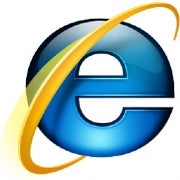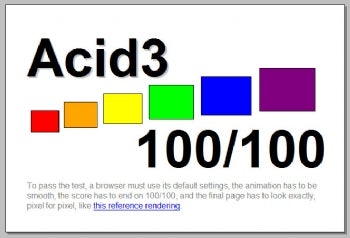Microsoft Should Kill Internet Explorer
 1/14/2010 02:13:00 PM
1/14/2010 02:13:00 PM
 kenmouse
, Posted in
IE
,
Internet Explorer
,
Microsoft
,
Technology
,
0 Comments
kenmouse
, Posted in
IE
,
Internet Explorer
,
Microsoft
,
Technology
,
0 Comments
 It's time for Microsoft to kill Internet Explorer. It has to be done quickly, before it's too late to rebound. The browser is bleeding market share in a way that a new version alone cannot stop. It's time for the company to rethink the browser and come at it from a fresh perspective. Microsoft needs a new browser, not a new version of an existing one.
It's time for Microsoft to kill Internet Explorer. It has to be done quickly, before it's too late to rebound. The browser is bleeding market share in a way that a new version alone cannot stop. It's time for the company to rethink the browser and come at it from a fresh perspective. Microsoft needs a new browser, not a new version of an existing one.Mind you, I'm not arguing that Microsoft should get out of the browser game. I still think the software giant has a lot to offer. Features like WebSlices and InPrivate are nice advances, and Microsoft has been at the forefront of anti-phishing technology. I'm just saying that continually creating new versions of Internet Explorer is not the way to go.
IE is in a terrible market share slide, and a new version isn't going to solve anything. Wikipedia averages out IE's market share to 62.69% as of December 2009. It's losing about one percent a month. Here at PCWorld.com, IE accounts for only 43.9% of browsers visiting the site - it's still ahead of any other one browser, but Firefox, Chrome, and Safari combined account for 53.7% of our visitors. IE is losing a percentage point every month worldwide, and that's just the start. There will come a tipping point where that loss will accelerate, and simply kicking out a new and shiny IE9 isn't going to stop the slide. After several years of lackluster versions, the IE name is now poison. It's time for a new browser with a new name.
Certainly, Microsoft is cooking up some good tech for IE 9. This video on Channel 9 showcases some of it. Drawing the browser window with Direct2D for perfect font rendering and smoother web apps? That's pretty cool! Unfortunately, nobody will care about these things if the browser doesn't become something much more than what it is today.
On the following pages are six ways Microsoft can revive its browser business.
New Name, New Face
1. Drop the Internet Explorer name
Calling a browser Internet Explorer in 2010 would be like Ford still flogging the Taurus brand. It conjures up images of the old Netscape days, when the web was an entirely different place. And by the way, there are plenty of folks out there that believe, right or wrong, that Microsoft won that battle by cheating. Why not call it the Bing Browser? You're hot to push that brand name, and people actually seem to like the Bing search stuff you're doing (those who have tried it, anyway).
2. Redesign the interface from scratch
Every new version of IE looks like a modified version of the one that came before. You can't ship a 2008-looking piece of software in 2010, and changing the name (see #1 above) won't get you anywhere if it still "looks like IE." Don't leave the interface design in the hands of the current Internet Explorer team, or the team that redesigned Office, or the Windows team. Give it to a group of fresh thinkers, like the designers that came up with the excellent Zune desktop software. The Zune app is smooth and clean, borderless, and doesn't rely on the staid icons and scroll bars of the general Windows UI.
In other words, it looks decidedly un-Microsoft, and that's the goal here. This isn't to say this future browser should look like the Zune desktop app. Consider, however, that the Zune app does what Windows Media Player does, fundamentally (organize and play music and video files) without looking or behaving anything like it. Don't make IE like you're making another Windows Media Player, make it like you're making a new Zune client.

Start axing buttons and drop-down boxes left and right. Who uses the Home button anymore? People just create new tabs with a default loading page. Reclaim as much space for actual web pages as possible, so we can see more of the sites we visit on those netbooks and ultraportable laptops with small 1280x600 screens. Dump the search box, as Google has done with Chrome - if it's not a URL, the browser should be smart enough to search our bookmarks, history, and the web. While you're at it, get rid of the title bar and status bar, and consider redesigning or moving the tabs and bookmarks bar to maximize the main browser window.
3. Pile on the useful new features
People don't want to browse their search history, they want to search their search history. And why make it a boring list? Let users open a "history tab" that shows sortable thumbnails of previously-visited sites that filter down instantly as you search. Work in some of the super-cool magic of that Pivot application the labs guys kicked out. That's just one simple example of how you should be re-thinking basic browser functions like bookmarks and new tabs/windows. I mean, keeping bookmarks synchronized across your PCs is a no-brainer...you need to go much further.
Add-ons, Standards, and Speed
4. Develop a new, robust, easy-to-develop-for add-on interface
Do people love Firefox because it's faster? Maybe. Half the people I talk to love it because they love their add-ons. There are add-ons for Internet Explorer, but let's face it, they pale in comparison to what you get on Firefox and now Chrome. Developers should be able to create FTP clients, bookmark managers, password managers, and yes even ad- and script-blockers. Look at where Firefox and Chrome are today and ask yourself "if the browser is a platform, then what is the next logical step in add-ons?"
5. Forget backward compatibility
You're already working hard on making the next Internet Explorer more standards-compliant and offering neat new features like Direct2D acceleration, much faster javascript performance, and so on. Great. Now forget about the ridiculous "compatibility mode" present in IE 8. If people still want to see something the way IE will show it, keep making IE 8 available to them. The new browser should have one mode and one mode only - full standards compliance mode. Yes, it might break some web pages. Guess what? Ask any web developer and they'll tell you every browser presents some formatting challenges from time to time, and what they want is an honest attempt to nail the standards, not to nail the existing sites. Sites are constantly being tweaked to work correctly in one browser or another; you're not breaking anyone's back by dumping support for "the way IE used to draw things."
If you really want to earn some cred with the alpha-geeks that influence the usage of everyone else, you should totally ace the Acid 3 test and the CSS Selectors suite. Yes, it's objectively more important to really get right all those features actually in use by the most popular sites in the world, but end users can't test across that the way you can. What they can and will do is run these sorts of publicly available tests and judge your browser on them, quickly proclaiming the slightest hiccup as "yet another total failure of Microsoft to understand the importance of standards compliance." Unfair? Perhaps, but that's the reality.
6. You can't be too fast or too light
Your next browser is going to be gauged quite heavily on how fast it starts, renders pages, runs javascript benchmarks, and how well it utilizes multi-core systems (especially with a lot of tabs open). Don't be fooled by IE's current leadership in market share. It's like the stock market - it doesn't matter how high or low you are, only whether you're moving up or down, and IE is on a serious and prolonged downward slide. You're coming from "distant third" position in desirability, and you need to have the kind of performance that will make people switch back from browsers that are already really fast (think of the performance of future versions of Firefox and Chrome!). It simply can't go fast enough. That Direct2D acceleration trick is a great start.
With all the focus on netbooks and small ultraportables these days, and the extended battery life they provide, your ability to render the tough web pages in an energy efficient manner is going to be key. Mark my words - battery benchmarks on demanding websites is the next great browser benchmark battleground. Plan to be in the lead.
Can Microsoft make a comeback in the battle for the browser? I think they can, but only if the company make a major mental shift. I know what you're thinking. "A rose by any other name..." Just because Microsoft makes another browser doesn't mean it's just another Internet Explorer with a new coat of paint, but only if it is developed with the passion and purpose of creating a new browser out of whole cloth. The mindset of making a "new version of Internet Explorer" has to go. The company needs to build a completely new browser product, with a new name, new look and feel, and new features - possibly built by a new team (or at least, with a lot of fresh new blood in the existing team). Microsoft needs to approach the browser as if they don't already have one and are trying to introduce a totally new and hot consumer product into a fierce, crowded, and rapidly changing market. Are they up to the task? I think products like Zune HD and Xbox 360 are examples of how MS can make critically successful game-changing products with the right mindset, and only needs to apply this thinking to the browser.

Microsoft should ace the Acid 3 test, even if they don't think it's that important.




0 Response to "Microsoft Should Kill Internet Explorer"
Post a Comment
Leave Your Thoughts & We Will Discuss Together